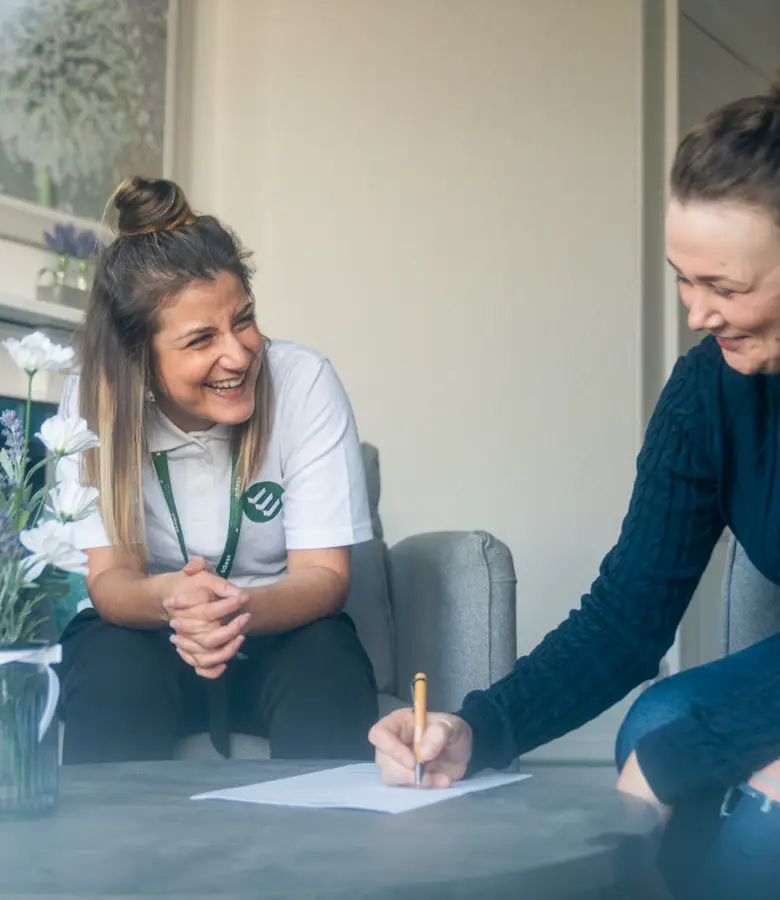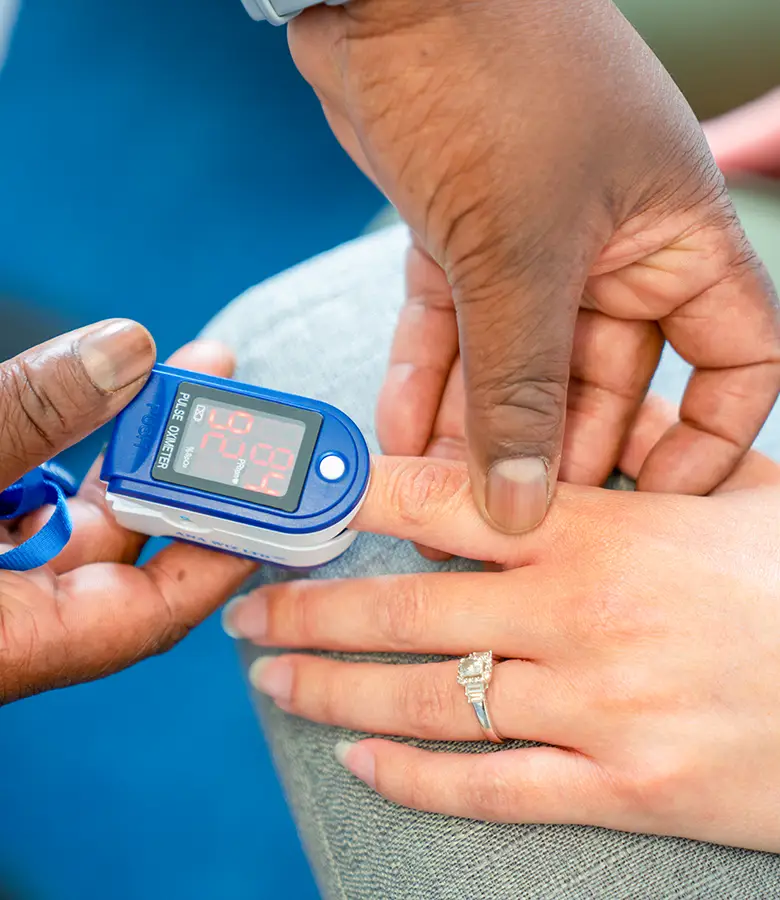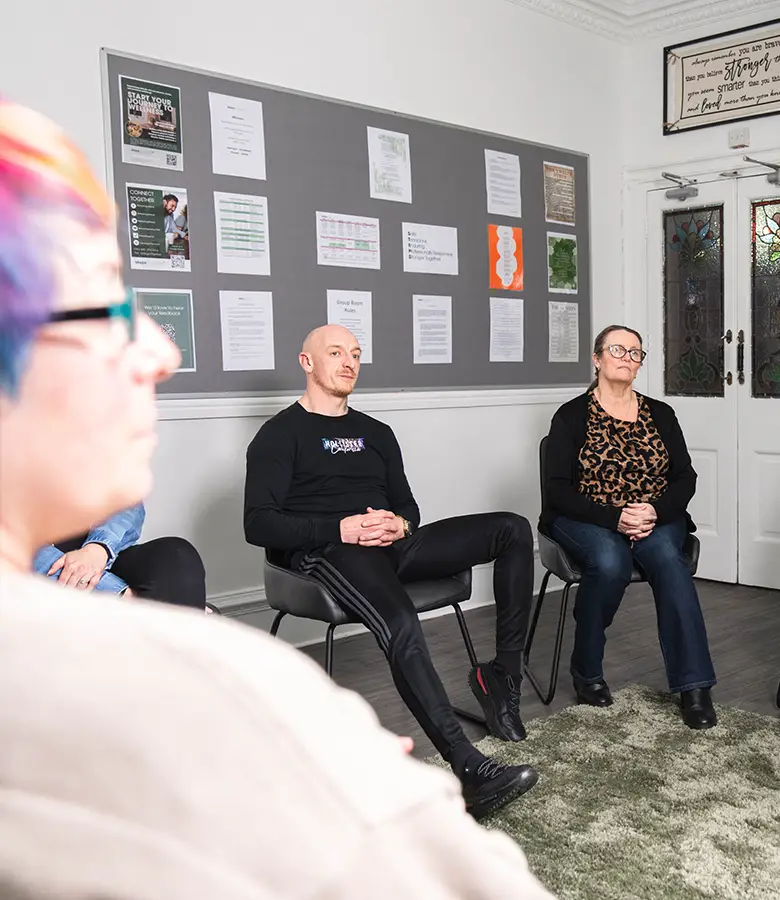Bereavement Counselling
Bereavement counselling gives you a safe space to talk about your loss and the feelings that come with it. It helps you manage the pain of grief and adjust to life without your loved one, making daily life feel less overwhelming.
You can discuss your emotions, cope with memories, and learn healthy ways to move forward. If you are struggling with grief, you do not have to face it alone. You can find support from trained professionals through different options, such as individual sessions or support groups.

Take the First Step Towards Recovery
Steps Together offers personalised support and proven treatments, providing the care, guidance and encouragement you need to move forward with confidence and build a healthier future.

What Is Bereavement Counselling?
Bereavement counselling offers support to help you cope with the emotional, mental, and even physical effects of losing someone close to you. Grief can be overwhelming, and it can bring intense sadness, confusion, or even emotional numbness.
Through specialised care and guidance, this type of outpatient counselling provides a safe space to express your feelings, understand your grief, and adjust to life after a loss. It also helps you develop healthy coping strategies, process complex emotions, and find meaning and connection as you navigate the journey of healing and remembrance.
How Bereavement Counselling Helps
Bereavement counselling is there to support you as you work through the pain of losing someone close. It provides a safe and compassionate space where you can share your feelings and reflect on your loss.
A counsellor can help you process difficult emotions, ease feelings of isolation, and explore healthy ways of coping with grief. The aim is not to take away the sadness but to walk beside you and eventually a path forward as you adjust to life after loss.


Differences Between Bereavement and Grief Counselling
Bereavement counselling and grief counselling are often used interchangeably, but there are some differences. Bereavement services are more focused on support after a death, helping you deal with the specific emotions and changes caused by losing someone close.
Grief counselling can cover a wider range of losses, like the end of a relationship, losing a job, or even losing health. Bereavement support is a form of grief counselling that is specific to death and the aftermath.
Approaches in Bereavement Care
Bereavement counselling uses different approaches to help you manage grief and make daily life easier. Each method offers unique ways to find support, connect with others, and take care of your emotional needs.
Support Groups and Peer Support
Support groups can give you a safe place to talk about your loss with people who understand because they have been through something similar. In these groups, you can share stories, listen, and learn coping skills from others. This kind of peer support often helps reduce feelings of loneliness and isolation.
Groups may meet in local community centres or online. A trained leader or facilitator usually guides sessions to keep the group welcoming and respectful. Some groups are open, so you can join anytime, while others are closed and meet for a set number of weeks.
Individual Therapy
Individual therapy gives you one-to-one time with a trained bereavement counsellor. This setting lets you talk openly about your thoughts and emotions in a private, supportive space. Therapists might use different approaches.
Your sessions focus on your personal needs, pace, and goals. Individual therapy can be helpful if you have ongoing difficulties with grief or if you feel that group settings are not for you. It also supports people dealing with complicated loss or when grief affects daily activities, work, or relationships.
Self-Care and Daily Wellbeing
Taking care of your physical and emotional health is important while you are grieving. Focusing on basic self-care, such as eating regular meals, getting enough sleep, and spending time outside, can help the bereaved manage emotions and stress linked to bereavement.
Simple activities, like journalling or creative projects, may help you process thoughts and feelings. Exercise, even a daily walk, can boost your mood. Mindfulness and relaxation techniques, such as deep breathing or meditation, can reduce anxiety.
Behavioural Therapy
Behavioural therapies, such as cognitive behavioural therapy (CBT), in bereavement counselling can help you cope with loss by focusing on changing unhelpful behaviours and building healthier routines. This approach encourages the development of positive coping strategies, such as engaging in meaningful activities and re-establishing daily structure.
It can help reduce feelings of helplessness, isolation, or avoidance that often follow a significant loss. By setting small, achievable goals and reinforcing adaptive behaviours, behavioural therapy supports your emotional adjustment, promotes healing, and helps you move forward while still honouring your grief.
Other outpatient counselling services our rehab centre offers

Recognising the Need for Bereavement Counselling
After a significant loss, you may feel unsure of what is normal when grieving. Your reactions to bereavement can vary, and some signs might show that professional support could help you navigate this difficult time.
Grief is a natural reaction to losing someone important. It can affect your emotions, thoughts, and even physical health. Some people experience sadness and cry often, while others feel numb or disconnected. You might have trouble eating or sleeping, lose interest in things you once enjoyed, or struggle to concentrate.
Common Emotions
You may feel a wide range of emotions after a loss. Anger is normal and can be directed at yourself, others, or even the person who has died. Sadness is common, with waves of tears or emptiness. You may also feel guilty and might blame yourself for things you did or did not do. These feelings can be overwhelming and make it hard to speak openly with friends or family.
A bereavement counsellor can help you sort through these emotions. They offer a place where you can say what you truly feel without fear of being judged. Learning to recognise and accept emotions like anger and guilt is an important part of bereavement counselling and helping you find better ways to cope.

Accessing Bereavement Support
Community organisations can be a good starting point if you are seeking bereavement support. Many offer free or low-cost services, such as group sessions, helplines, and specialist advice for families, young people, or those who have lost someone due to specific causes. Charities and the NHS also offer counselling and bereavement support services.
Private treatment centres offer professional bereavement counselling and therapy, often delivered by trained and qualified counsellors. Private centres usually charge for their services, but they may offer a wider range of therapies such as one-to-one, family counselling, and tailored support plans.
Not all support has to come from professional sources. In many cases, leaning on friends and family can help you get through the bereavement process. Beyond helping you, just having a support system around you can help you remember that there are people who care about you.
How Aftercare Services Support Recovery
Recovery doesn’t stop once treatment ends. Aftercare provides the guidance and structure you need to transition back into daily life while maintaining the progress you’ve made.
Building a Support Network
Ongoing connection is one of the strongest protectors against relapse. Aftercare helps you strengthen ties with family, peers, and community groups so you feel supported and less alone in your journey. These connections provide encouragement on difficult days and remind you that you don’t have to face recovery by yourself.
Developing Healthy Routines
Lasting recovery grows out of stability. Aftercare encourages routines around sleep, nutrition, exercise, and meaningful activities, giving you healthier ways to manage stress and maintain balance. Simple habits like regular meals, daily movement, or planned downtime can help you feel more grounded.
Preventing Setbacks
Life after treatment brings challenges, but aftercare equips you with tools to handle them. From relapse prevention strategies to practical coping skills, the focus is on helping you stay steady and confident in recovery. You learn to spot early warning signs and act before they become bigger problems.

We're Here If You Need Bereavement Counselling
Grief is a part of life. The death of someone close can leave someone feeling lost or adrift. But our bereavement counselling services can offer emotional support to anyone affected by the loss of someone.
At Steps Together, we can help you navigate loss through outpatient treatment, so don’t hesitate to contact us when you’re ready for help. There is life after a major loss, and we’ll help you find out what yours looks like.
Frequently Asked Questions
What services does the NHS provide for bereavement support?
The NHS offers support after losing someone, which includes information, access to therapies, and practical help. You can talk to your GP, who may refer you to counselling, local support groups, or mental health teams. Some NHS services provide talking therapy, such as cognitive behavioural therapy, for grief-related problems.
Are there any free services available for bereavement support?
Yes, free services are provided by the NHS, some charities, and community organisations. Many local and national charities offer free short-term support or group therapy. Your GP or local council website may list free options.
What training is required to become a qualified bereavement counsellor?
To become a bereavement counsellor, you usually need counselling qualifications recognised in the UK. This might include a diploma in counselling and specific training related to grief. Some organisations also require practical experience, membership with a professional body, and ongoing training.
How can I locate grief counselling services in my area?
You can find local bereavement counselling through your GP, local charities, community centres, and dedicated mental health websites. Many areas have support groups or organisations for specific types of loss. Online directories, bereavement charities, and local health services usually offer search tools or contact numbers.
What options are available for children requiring grief counselling?
Children can access special support through local bereavement charities, the NHS, and schools. Some services have counsellors trained to help children at different ages, using play therapy or age-appropriate talking therapy.
What are the benefits of engaging with private grief counselling?
Private grief counselling offers flexibility with appointment times and the ability to choose a counsellor who suits your needs. Sessions may be more frequent or last longer than those from public services. You can get individual or family counselling, and some private providers offer online sessions for easier access.





